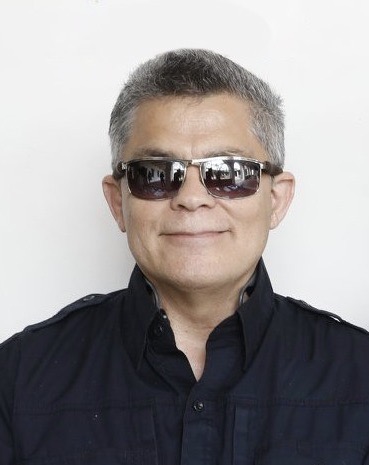I first met Greg Benavidez 25 years ago, when we were both students at the Braille Institute in Santa Barbara. The Braille Institute was like a second home to us. Greg went on to have a long career there as a computer instructor. I learned to read and write Braille, which I taught for 10 years as a volunteer.
When you first lose your sight, the slightest tasks, like pouring yourself a glass of water, seem insurmountable. You can’t imagine you will ever cross the street alone again, much less use an iPhone or look up something on the internet.
But Greg was determined to live an independent life. He took a lot of classes in computers for the blind, and he had a phenomenal photographic memory. He became so proficient that he was able to take a computer apart and put it back together again as if he were a sighted person.
Greg started out as a receptionist at Braille and was quickly hired by the institute as an access technology instructor, a position he held for nearly two decades, up until his death on January 24 this year.
I miss Greg so much, so very much. He and I were nearly the same age. I was one of his students, and he was the best teacher I ever had. I thought of Greg as my father because he guided me and taught me how to go on living in this life of darkness. He used to tell me that we could stand on our own two feet so that our lives would have more meaning. He made me feel important and showed me that I could make a difference and that I could help others, as he did always.
Greg spent most of his life in Santa Barbara. As a young adult, he worked for his father as a handyman and then became a diesel truck mechanic. Greg started going blind in his twenties, and it took him several years to put aside his pride and sign up for an independent living skills class at Braille. Once he did, his brilliant career as a master teacher took off. Greg had only a high school education, but he was a computer genius. He gave his all to the students who could absorb what he was teaching them and put it to use.
Greg could use a cane like nobody else; from him I learned how to distinguish what was producing a big or small sound, and where it was coming from. Greg taught us how to use our ears and never to cross the street if it was too noisy. He mastered the JAWS program that reads aloud what’s on the computer screen, and the voice-over program that tells us what’s on our iPhone screens.
Greg didn’t speak Spanish, and I didn’t speak much English, but we understood each other very well. One of the first things we Latinos learned about Greg was that when he told us to practice, he would ask us in the very next class: “Did you understand? Did you practice: Yes or no?!” There was a lot of philosophy in that “yes or no” — he didn’t want to hear any excuses. We had to get used to that. But he could also lift everyone’s morale with a quick joke.
Greg was very special. And it is really hard to lose him now because the welcoming community that was once a lifeline for us at Braille is gone. It is as if the institute itself is dying. Well before the pandemic, under the direction of the regional headquarters in Los Angeles, there was an exodus of teachers and administrators from the Santa Barbara branch, all of them veterans, all of them beloved — people who were fired, laid off, forced out, or resigned in protest.
Beginning around 2017, many of the local programs were reduced or eliminated, including field trips in the community, classes in English-as-a-second-language, outdoor activities for youth, mental-health counseling, and instruction in how to use a cane and take the bus. The administration took away the hot coffee and tea in the lunchroom, saying that safety was their priority. We Latinos thought it made no sense for us not to practice using a coffeepot, and we tried to donate one. They wouldn’t accept it; someone else donated one, and they relented, but we had to pay 50 cents a cup.
The final straw was that they discontinued the free daily van rides to and from our homes, a service that many of the older, frailer students depended on. After that, there were days when only 10 people would show up at Braille.
Greg was upset about the decline in services and the impact it was having on us, but he knew he would be a “short-timer” if he talked openly about it. He kept teaching full-time; I was taking three classes with him on Zoom during the pandemic, learning about the latest high-tech devices for the blind.
Just the other day, I needed Greg’s help — again — on my iPhone. It would have taken him less than two minutes to figure out the problem; it took me two hours. I have to learn how to do these things by myself, now that Greg’s not here to tell me, “Do this, do that.” Now it’s my turn to help others: This is how we pass the chain of knowledge from one to another, just as we learned from our great friend and teacher, Greg Benavidez.
Greg is survived by a daughter, Cierra Benavidez of Santa Maria; and two sons, Steven Benavidez and Greg Benavidez Jr. of Santa Barbara.
This article was translated from the Spanish by Melinda Burns, a former Braille Institute volunteer.

